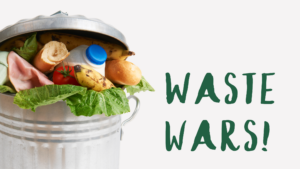The decision came about when, after a distracted moment, I looked over to find my 2 year old daughter ripping into a Kinder Surprise that she had helped herself to without my consent. Who could blame her, considering it was right next to her head at perfect eye level?
This was the final straw and I decided that if Woolworths and Coles won’t listen to our requests for healthier food checkouts, then I will not shop there and I will not go there again with my kids.
Three months later and, here’s the thing, we are still alive and actually doing much better without supermarkets.
As our children are not constantly being bombarded with junk in their regular food environment they appear to have forgotten about most sweets. I no longer have to avoid whole aisles and my kids don’t ask for sugary treats so much now, it truly seems that it is a case of out of sight, out of mind.
I haven’t completely solved the problem, as unfortunately, if I go into post offices or pharmacies there are still chocolate bars and lollies staring my two year old daughter in the face. However I can say from experience that it has made a big difference to my whole shopping experience. We’ve also enjoyed the benefits of getting to know our local grocer and butcher. They have a lot more time for us, encourage the kids to try different foods and let us know what is fresh and on offer this week.
I was initially worried that avoiding supermarkets would be much more expensive. While I will admit it takes us longer, it actually doesn’t cost us that much more than we were already paying at major stores.
Being in inner city Melbourne means there is access to a vast range of independent grocers, family businesses and farmers markets however it is not the only way we shop. We utilise a combination of ordering online, getting veggie boxes delivered, and shopping at little grocers and markets. Fruit and veggie boxes are easy to find online, we get ours from CERES Fair Food as they support Victorian farmers; there are others such as Aussie Farmers Direct and Local Organics.
Admittedly it does get harder in rural settings but here is where we can share our tips and see what works in different areas. Perhaps it’s a case of getting to know your local growers. Maybe there’s a farmers market near you, or small community groups could get together and work with local growers to showcase fresh, local produce. Supporting alternatives to the big two supermarkets has got to be healthier and better for the whole community.
Families have great power as we spend so much of our budget with the major supermarkets and we represent a huge proportion of their market. If you’re unhappy with the way they try to sell unhealthy food to your kids, do something about it. Check out alternatives in your area and don’t forget to tell the supermarkets exactly why you’re taking your custom elsewhere, maybe then they will listen to what parents really want.



